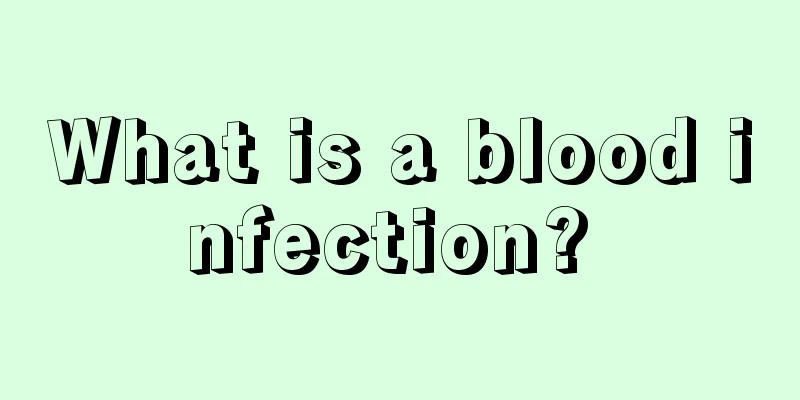Which is better, rectal enema or infusion?

|
Rectal enema is a way to treat physical diseases in daily life. It is generally suitable for infants. Rectal administration is the method of injecting drugs into the child's body through enema, and the absorption effect is better. Infusion is also a common treatment method. The administration method can be selected according to the different severity of the child's disease. Rectal enema can be chosen for common diseases. Which is better, rectal enema or infusion? IV fluids advantage 1. The drug has a fast effect and can easily reach the therapeutic concentration and maintain the constant concentration required for the therapeutic effect. 2. Drugs that are irritating to muscles and subcutaneous tissues can be administered intravenously. 3. It can quickly replenish the fluid or blood lost by the body. 4. Infusion of intravenous nutrients. 5. It has irreplaceable treatments for certain diseases, such as diarrhea, dehydration, and nutritional imbalance. shortcoming 1. Improper handling may easily lead to systemic or local infection. 2. Overdose or too rapid infusion of drugs may easily cause adverse reactions and even endanger life. 3. Continuous excessive infusion may easily cause excessive circulatory load or electrolyte imbalance. 4. Reduce human immunity. 5. Intravenous infusion carries high risks, which makes both doctors and patients nervous during the medication process. Rectal administration Rectal medication is also called enema. It existed as early as 3,000 years ago. It actually changes the route of administration of oral medications. The oral medication was changed to rectal medication. It utilizes the principle that the rectum has abundant veins, is absorbed quickly, and is not modified by stomach acid, making its effect better. Rectal administration has a wide range of therapeutic applications, and all diseases that are suitable for oral medication are suitable for rectal administration. Absorption mechanism Modern medicine has confirmed that the rectum is surrounded by abundant arteries, veins, and lymphatic plexuses, and the rectal mucosa has a strong absorption function. In rectal administration, the drug is mixed in the rectal secretions and absorbed through the intestinal mucosa. There are three main routes of delivery: First, it is directly absorbed into the general circulation through the middle rectal vein, the lower rectal vein and the anal vein. Since it does not pass through the liver, it avoids the first-pass detoxification effect of the liver and increases the blood drug concentration. Second, it enters the liver from the superior rectal vein through the portal vein, and then participates in the general circulation after metabolism; Third, the rectal lymphatic system also absorbs some drugs. All three routes do not pass through the stomach and small intestine, thus avoiding the influence and destructive effects of acid and alkaline digestive enzymes on the drugs, and also reducing the irritation of the drugs to the gastrointestinal tract. Therefore, rectal administration greatly improves the bioavailability of the drugs. Traditional Chinese medicine believes that the large intestine includes the colon and rectum, and its collaterals are connected to the lungs, which are the exterior and interior of the lungs. "The lungs face all the meridians," so after being absorbed by the rectum, the drugs can be transported to the lungs through the meridians, and then transported by the lungs to the internal organs and limbs. At the same time, the large intestine, small intestine, and bladder are located in the lower part of the body, and the kidneys control water and defecation, thus providing a theoretical basis for rectal drug administration to treat acute and chronic renal failure, which is similar to the "dialysis" effect. In addition, the prostate is close to the rectum, and transrectal administration of the drug can allow the drug to reach the affected area directly and also has a local thermal therapeutic effect, which is an effective method for treating prostate diseases. |
<<: Does wisdom tooth extraction require infusion?
>>: What are the consequences of blood return from infusion?
Recommend
Symptoms of liver metastasis of lung cancer at different stages
What are the symptoms of lung cancer liver metast...
What is shaving foam used for?
For adult men, shaving foam is a very familiar da...
Will there be pain in the left ribs in the early stages of pancreatic cancer?
Early stage pancreatic cancer does not necessaril...
Can I drink honey water after breast cancer surgery
After breast cancer surgery, you can generally dr...
Introduction to eyebrow types
In life, everyone's eyebrow shape is differen...
There is white stuff on the lingual tonsils
When something abnormal happens to their tonsils,...
What to do if a laryngeal cancer tumor ruptures
Long-term improper diet can easily lead to laryng...
What are the nursing measures for lung cancer? Three effective ways to care for lung cancer
Lung cancer patients should relax their whole bod...
Which part of the cow is roasted butter?
Everyone knows that butter is condensed milk extr...
How to care for dry mouth in nasopharyngeal carcinoma patients after radiotherapy
Dry mouth is one of the common side effects of ra...
How to use nose patch
Ventilation nasal patch is a medical product that...
How long does it take for red bean and coix seed to take effect?
Red beans and coix seed have a good effect on con...
Can acetic acid be used to clean scale?
We may find such a phenomenon at home, that is, w...
What is chronic pharyngitis, types and causes of chronic pharyngitis
Chronic pharyngitis is a disease that confuses pa...
Why is avocado so unpalatable
Avocado, also known as alligator pear, contains a...









